Search
Search Results
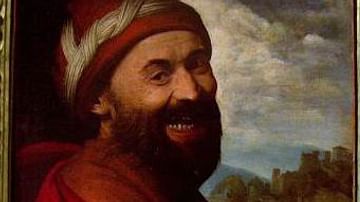
Definition
Democritus
Democritus (l. c. 460 - c. 370 BCE) was a Greek philosopher and younger contemporary of Socrates, born in Abdera (though other sources cite Miletus) who, with his teacher Leucippus (l. 5th century BCE), was the first to propose an atomic...
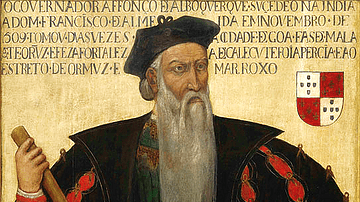
Article
Bangkok's Portuguese Past
Any itinerary for a visit to Bangkok, Thailand would include some of the city's must-see historical and cultural sights: The 24-hour flower market (Pak Khlong Talat) filled to the brim with jasmine-scented garlands, fragrant carnations...
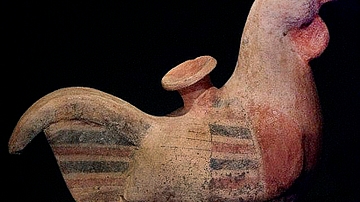
Image
Rooster Perfume Vessel
Perfume Vessel c. 540 B.C.E. excavated from the cemetery of Sindos, Greece. Currently housed in the Archaeological Museum of Thessaloniki, Greece.
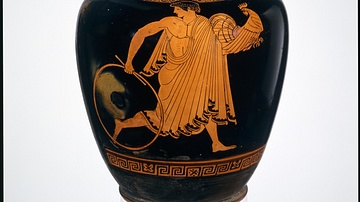
Image
Ganymede Playing with a Hoop & Rooster
A red-figure vase painting of the Trojan prince (and cup-bearer to the god Zeus) Ganymede, playing with a hoop and rooster, or game-cock. The presence of a game-cock may be representative of Ganymede's relationship with Zeus, as men in ancient...
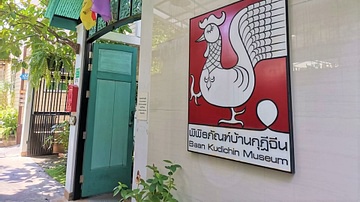
Image
The Barcelos Rooster - Symbol of Portugal
At the entrance to the Baan Kudichin Museum in Kudeejeen, Bangkok Thailand is a Portuguese rooster celebrating the Portuguese heritage of the Kudeejeen area.
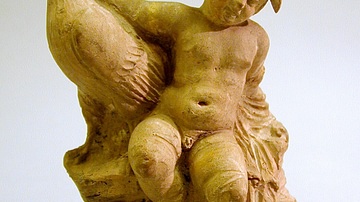
Image
Terracotta Statue of a Boy & His Rooster
A Hellenistic statuette of a little boy with a pet rooster or game-cock. Roosters were common pets in ancient Greece, often given to children as playmates, or given to lovers as tokens of affection. Terracotta. 2nd Century BCE, Pontus. Height...
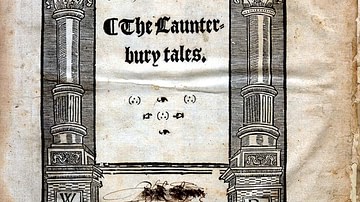
Definition
The Canterbury Tales
The Canterbury Tales (written c. 1388-1400 CE) is a medieval literary work by the poet Geoffrey Chaucer (l. c. 1343-1400 CE) comprised of 24 tales related to a number of literary genres and touching on subjects ranging from fate to God's...
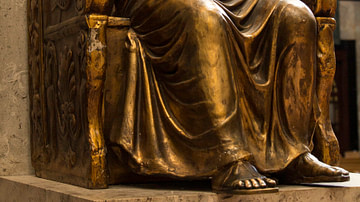
Definition
Saint Peter
Saint Peter the Apostle was a well-known figure in early Christianity. Although there is no information on the life of Peter outside the Bible, in the Christian tradition, he is often depicted as the first on many occasions: the first to...
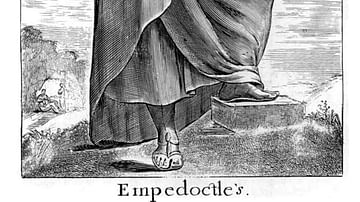
Definition
Empedocles
Empedocles (l. c. 484-424 BCE) was a Greek philosopher and mystic whose work harmonized the philosophies of Parmenides (l. c. 485 BCE), Heraclitus (l. c. 500 BCE), and Pythagoras (l. c. 571 to c. 497 BCE) in presenting a unified vision of...
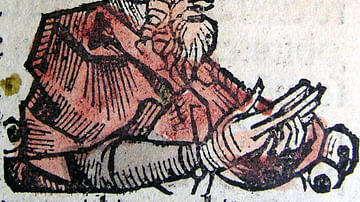
Definition
Melissus of Samos
Melissus of Samos (l. c. 5th century BCE) was a Greek philosopher of the Eleatic School, considered the third great proponent of that philosophy's claim that reality is One, after Parmenides (l. c. 485 BCE) and Zeno of Elea (l. c. 465 BCE...